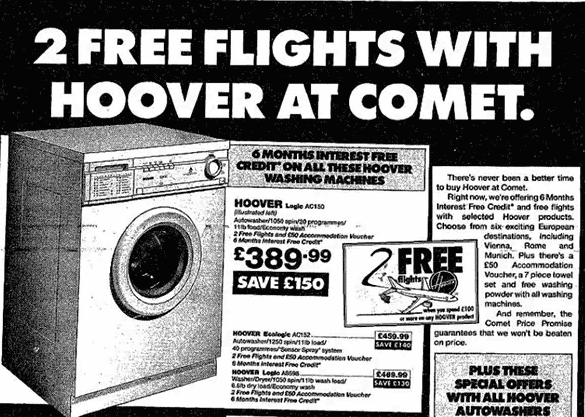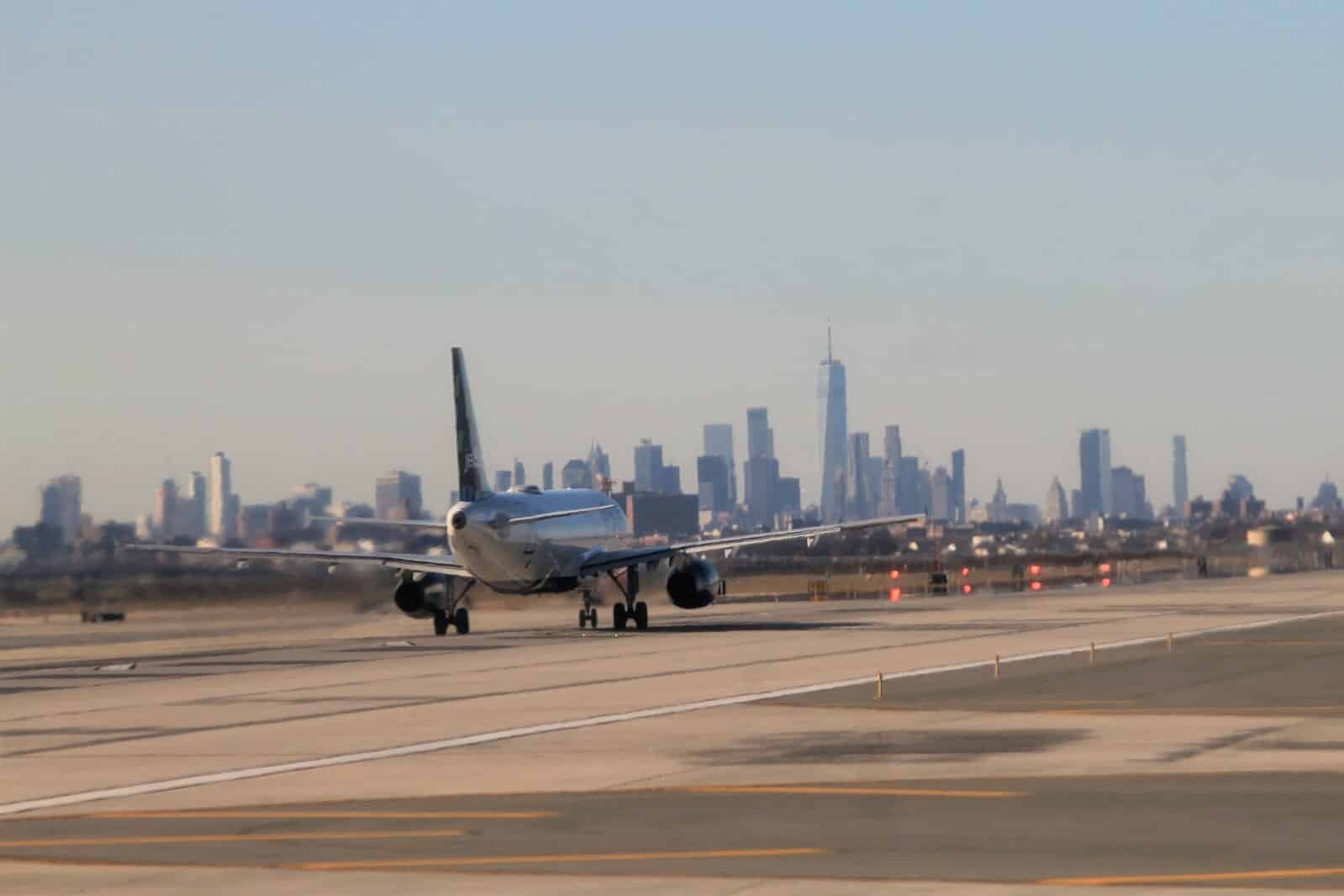Free flights with the purchase of a Hoover vacuum? This was a phenomenal deal for UK residents, which ended up being a catastrophic loss in finances. Many considered Hoover’s flight promotion in 1992 to be the one of the biggest marketing blunders of all time.
So how was this idea conceptualized in the first place? Here’s what led to Hoover’s not-so-ingenious marketing tactic.
‘Defied the Laws of Marketing Gravity’

Hoover’s European division was in a lull period in the early 90s with lackluster sales and competitors outselling the company in retail. Profits drastically reduced by almost half from 1987 to 1992.
As a desperate attempt to boost sales and marketing, the marketing department hatched an idea to include two free flights to America with every purchase.
How was this possible? It turns out, a travel agency called JSI Travel was also in need of a rejuvenation. The agency was looking for a means to offload economical flights. The two companies worked together to get this concept off the ground.
On paper, it sounded like a move that would benefit both companies. JSI would sell flight tickets to Hoover and Hoover would see an increase in sales.
Demand for the promotion was high, which led to increased production of the Hoover Turbopower Total System, the least expensive product that qualified customers for the free airfares. The minimum qualifying price was £100.
The purchase of the Hoover product would lead to a process of mailing items back and forth. The customer would send its proof-of-purchase to Hoover. Hoover would then send a registration form by mail, then a booking form.
On the booking form, the customer had to choose from a list of departure cities, arrival cities, and flight times. The customer had 30 days to mail this in. If the customer chose a route or time that couldn’t be fulfilled, Hoover would pick a different route or time for the customer.
Hoover’s Obvious Promotional Flaw
How much did JSI charge Hoover for each flight ticket? Around £600. That means Hoover would actually make a loss of £500 per product sold.
PIMS-SCA Managing Director Mark Kimber strongly opposed the idea and tried to advise Hoover at the time to reconsider.
‘I advised Hoover of the potential pitfalls of the promotion. Having looked at the details of the promotion along with attempting to calculate how it could actually work I declined to even offer risk management coverage based upon the information presented. With such a high value offer for only a relatively small cost to the consumer, to me it made no logical sense,’ Hoover wrote.
But alas, the Hoover marketing team doubled down. The European division believed that two factors would make the endeavor a success: The belief that customers would spend more than £100 on goods, and the belief that only a fraction of customers would go through the long process to obtain the flight tickets.
The promotion caused Hoover products to fly right off the shelves. Hoover factory workers also had to increase their work days to seven days weekly to keep up with demand.
Hoover’s Greed Comes Back To Haunt It
Hoover products were selling ten times the company’s projections. It’s reported that 200,000 to 300,000 customers were looking to obtain free flights to America, and most of them only spent the minimum £100. Essentially, customers saw it as £100 plane tickets with a free vacuum included.
While Hoover did make £30 million from the promotion, flight accommodations caused the company to lose around £100 to £170 million.
To avoid the expenses from ballooning, Hoover would back out of fulfilling customers with free flights, such as pretending the forms were lost in the mail or claiming they incorrectly filled out the forms. Hoover even would send out on Christmas Eve in hopes customers would miss the deadline to return them.

The collective amount of failed fulfillments on tickets caused an uproar in England. A coalition was even formed in spite of Hoover’s unfulfilled promises which skyrocketed to over 4,000 members. In June 1993, a resident blocked a Hoover delivery van inside his driveway with his horse truck for 13 days until a high court had to intervene.
Consumed by Candy
At the end of 1993, Hoover reported £23 million in losses on £390 million in sales. Hoover’s US President Gerard Amman told shareholders that 80% of the losses are credited to Hoover Europe. The president of Hoover Europe and two marketing executives were later fired.
Two years later, Hoover Europe was sold to Italian appliance manufacturer Candy for £106 million, which was reportedly sold at a loss.
To this day, no other company has attempted to include free flights with the purchase of retail goods, and for good reason.
